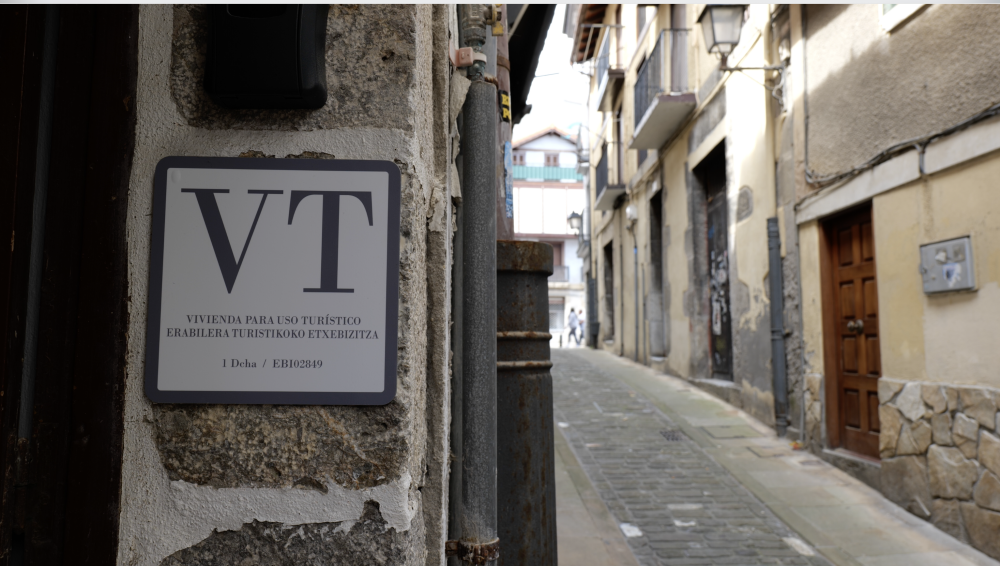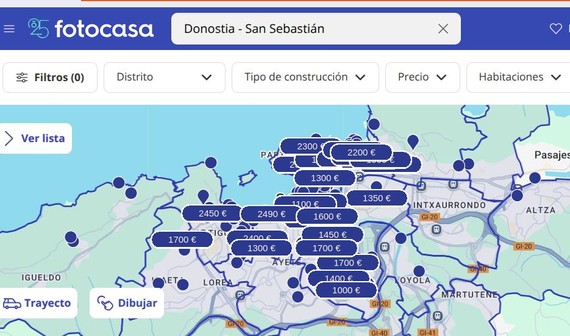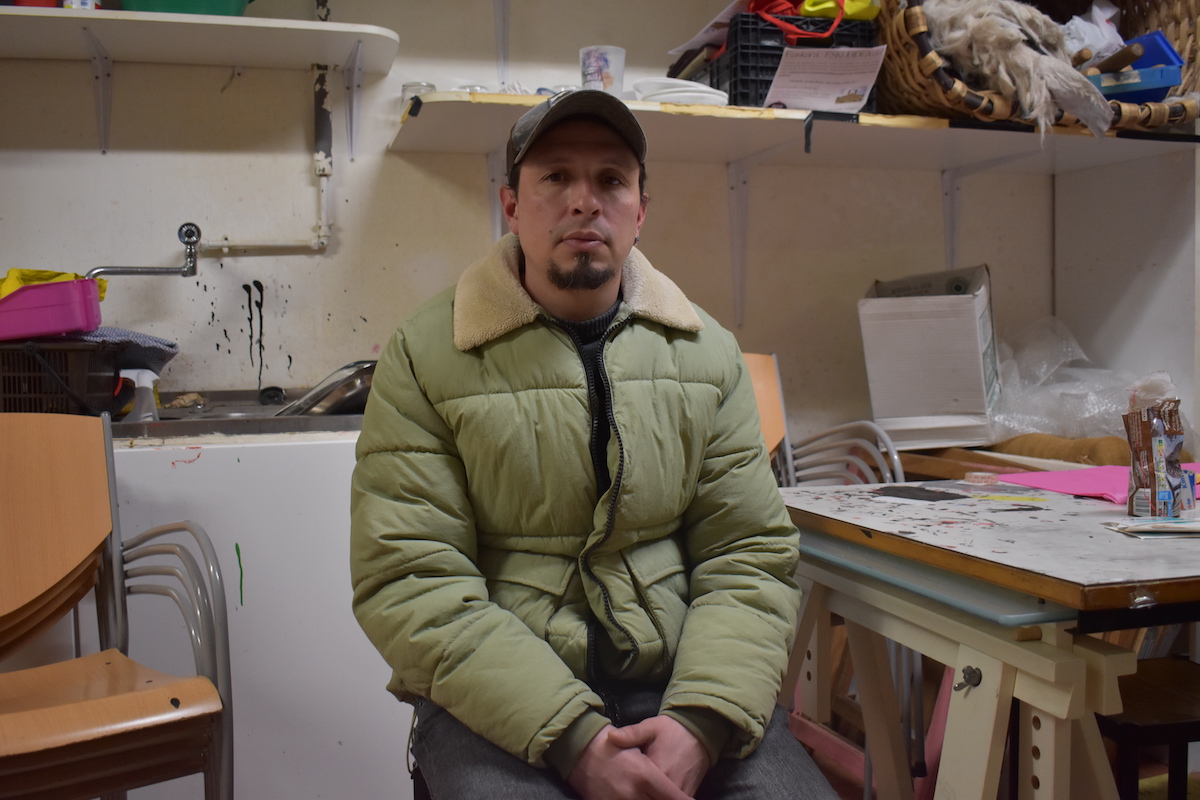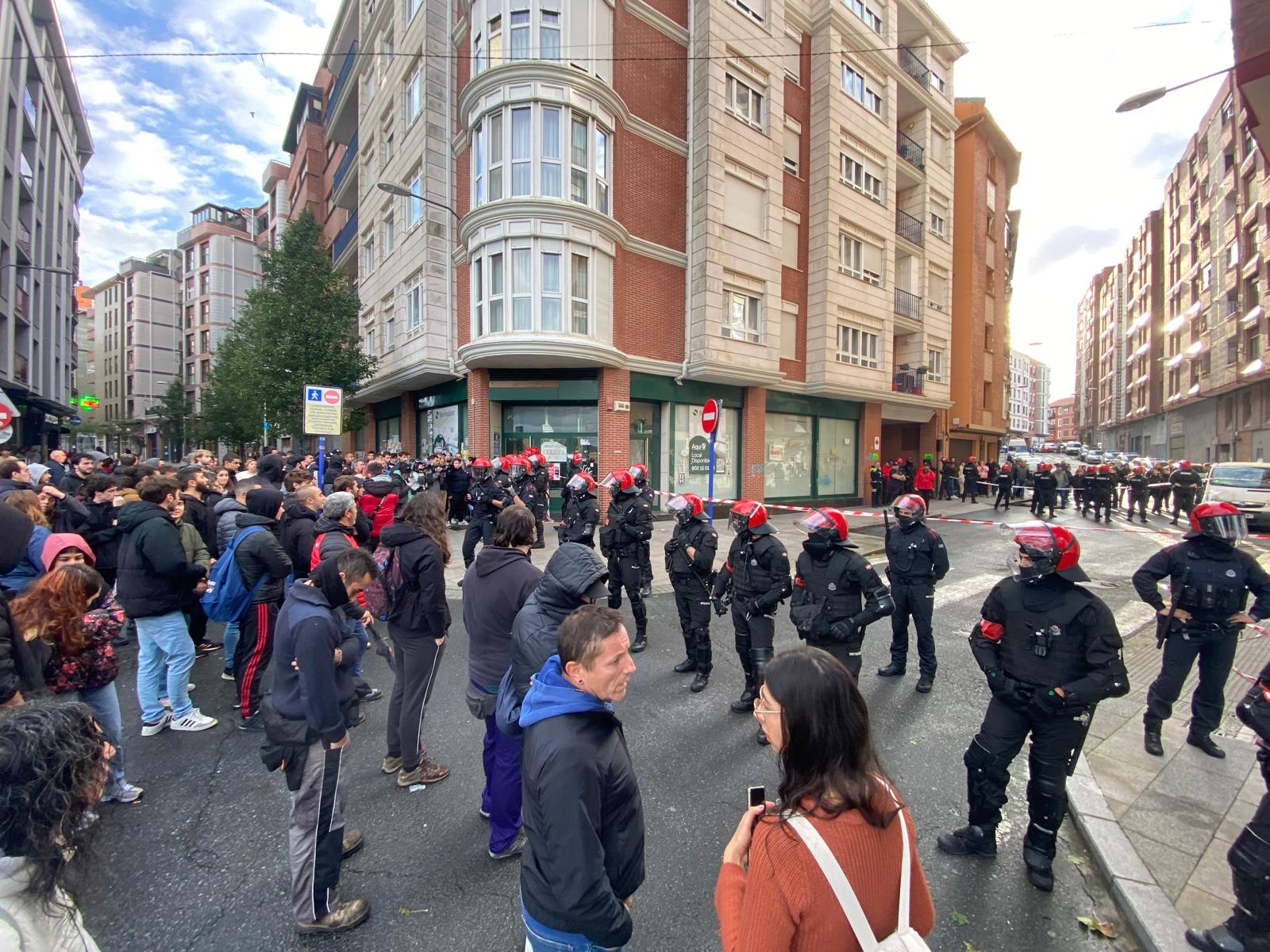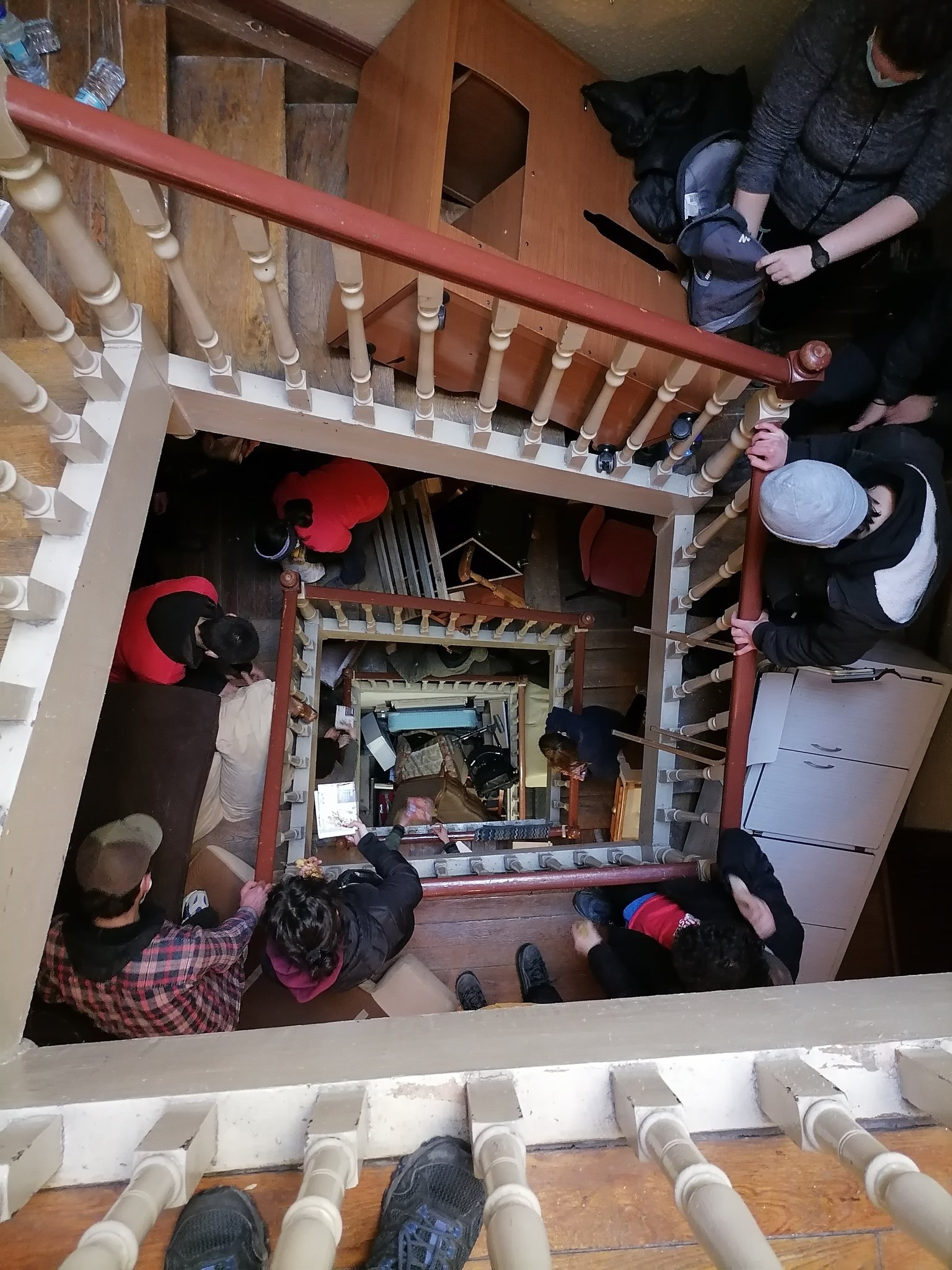The Housing Group of the Casco Viejo de Bilbao stresses that the pressure and organization of the population are essential
- A week after the eviction of Bilbao la Vieja, the Housing Group of the Casco Viejo de AZET has made public its reading of the facts. The social services and the City of Bilbao, in addition to denouncing the attitude of the police, have warned of the need for the housing unions.

On September 10, in the wake of the eviction of Mari Carmen, neighboring Bilbao La Vieja, dozens of people moved around Portal 35 of Urazurrutia Street. To prevent the Ertzaintza from reaching the house, access to the building inside and outside was blocked, and thanks to this resistance an alternative was agreed for Mari Carmen. Thus, despite the fact that Mari Carmen was evicted from her home, the City Council promised to pay provisionally for her home until the affected person can meet the expenses of her home.
This negotiation was the result of the intervention of the Casco Viejo Housing Group AZET, which called for the mobilization. The case was known by the Housing Group two days before eviction, as was Mari Carmen himself. He had a judgment for not paying the rent and although he knew he was going to be fired, he didn't know when. On 8 September, two days before the eviction, he received the warning of an ordered eviction on 8 June this year. In the face of this situation, in solidarity with Mari Carmen and with the aim of preventing him from staying on the street, AZET called for the eviction.
Event reading
AZET has defined this “small victory” as a “starting point” far from being an objective, through the reading it has made public a week from the facts. In the opinion of the Housing Group, last Thursday’s is the starting point for further organizing “class solidarity, politicising the housing problem”. On the road to this goal, the “pressure and self-organization” of citizens has been considered essential. As they stressed, the achievement would have been impossible “without the participation of the neighborhood’s neighbours and members of the housing unions of the different neighborhoods and villages of Bizkaia”.
They have also taken the opportunity to denounce it. They say that the dismissal of Mari Carmen was not an isolated case, nor an individual problem of precariousness, nor a problem among individuals. They strongly denounce: “Mari Carmen’s dismissal is political and accountable.” In this sense, they have pointed out the abandonment of the social services and the Bilbao City Hall as political decision-makers of the eviction of beating the Consistory.
In addition, they have taken advantage of the lines to show their rejection of the Ertzaintza action in this case. Police action has been described as violent and disproportionate, and is accused of stressing the situation and taking action against the people on the spot. In this sense, they have pointed out that the Municipal Police of Bilbao joined the Ertzaintza in a joint operation.
Wager on housing unions
Beyond the reading of the facts, there has also been a political reading of the housing problem. They have pointed out that there are two opposite ways of perceiving housing, closely linked to class interests: on the one hand, housing as a residence and, on the other, housing as a commodity. “This is the key that places the conflict in class parameters and the contradiction that has to be put on the table to politicize the housing problem,” they explained.
With this contradiction on the table, AZET has shown its firmness to “commit to radical struggle” in defense of the lives and housing of citizens. “Within the process of proletarianization of the working class, more and more people will not be able to access a decent rental or housing. In this context, we believe that fighting for residents not to be evicted is a way to reorganize class solidarity,” they explained. In this regard, they have stressed that they reaffirm their commitment to the organization of housing unions.
Aljeriatik datoz Mohamed eta Said [izenak asmatuak dira], herri beretik. “Txiki-txikitatik ezagutzen dugu elkar, eskolatik”. Ibilbide ezberdinak egin arren, egun, elkarrekin bizi dira Donostian, kale egoeran. Manteoko etxoletan bizi ziren, joan den astean Poliziak... [+]
Espainiako hedabideetan aurkitu dugu albistea, salaketa egin dutela Fotocasa eta Idealista etxebizitza-atarien kontra, prezioak manipulatzen dituztelakoan. Salaketan ez dugu manipulazioaren deskribapen zehatzik aurkitu, baina Ameriketako Estatu Batuetan agertu den salaketa... [+]
Ez da gauza berria politikari profesionalak gizarteko arazoak estaltzeko ahaleginetan ibiltzea. Azkenaldian Denis Itxaso -EAEko Etxebizitza sailburua- entzun dugu etxegabetzeei garrantzia kenduz eta aditzera emanez gurean bazterreko fenomenoa direla; eta Begoña Alfaro... [+]
Azpeitiko Udalak etxebizitza hutsei ezarritako kanona abian jarri berritan –eta Euskadi osora zabal daitekeela jakinda–, etxebizitza horien jabeen eta eskuineko alderdien kexak irakurtzen eta entzuten hasiko gara. Jabetzarako Eskubidearen inguruko mantra horiek... [+]
Azora putre funts alokairua igo eta mantentze lanak alde batera utzi ditu, Isaac Lagos eta bere familia etxebizitza uztera behartuz. Kaleratzearen aldeko epai bat jaso berri du maizterrak.
Plataformak "atzerapausotzat" hartu du Eusko Jaurlaritzako Etxebizitza eta Hiri agendako sailburu Denis Itxasok berriki iragarri izana lurzoru urbanizagarrietako etxe babestuen proportzioa %75etik %60ra jaistea. Pradales agintera iritsi zenetik alokairu soziala eskatzen... [+]
Etxera itzuli ahal izan diren arren, joan den azaroan kaleratu zuten Astrabuduko familia berriz ere arriskuan dago. Uribe Kostako Etxebizitza Sindikatuak salatu du mailegu-enpresa berriz ere saiatzen ari dela kanporatzea gauzatzen, oraingoan, desokupazio-enpresa bat... [+]
Azken boladan gero eta gehiago entzuten dugu gazte askok etxebizitza erosteko ahalmenik ez dugula. Batzuetan, badirudi ez dagoela beste gairik; egia da gai serioa dela. Niri neuri ere, 31 gertu izan arren, oraindik pixka bat falta zait neurea izango den etxebizitza lortzeko... [+]
Azken egunak garrantzi handikoak izan dira Bartzelonan, etxebizitzaren aldeko mugimenduarentzat eta espekulatzaileen aurkako borrokarentzat. Urtarrilaren 28an, polizia-armada batek Raval auzoko Massana Zaharrari [zentro sozial okupatua] eraso egin zion goizaldean, aurrez abisatu... [+]








